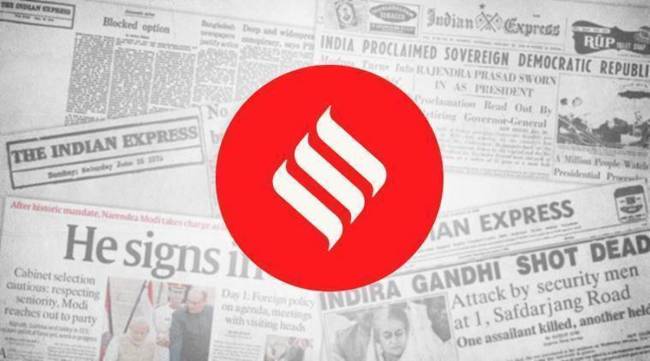Opinion Whose LJP?
Family drama in Ram Vilas Paswan’s party points to its failure to become a platform that could survive its founder’s death.
 On Tuesday, Chirag expelled the five MPs from the party while the rebels claimed that they had removed Chirag from the post of national president of the LJP.
On Tuesday, Chirag expelled the five MPs from the party while the rebels claimed that they had removed Chirag from the post of national president of the LJP. Less than a year after its founder Ram Vilas Paswan passed away, the party he founded is threatening to implode. Last week, five MPs of the Lok Janshakti Party came together under his brother Pashupati Kumar Paras, to oust his son and national president, Chirag Paswan, from the post of leader of the party in the Lok Sabha. On Tuesday, Chirag expelled the five MPs from the party while the rebels claimed that they had removed Chirag from the post of national president of the LJP.
The disquiet in the LJP has all the trappings of a succession battle. Political parties in India, especially regional outfits built around charismatic leaders, tend to witness a leadership tussle after the founder’s death. The LJP was born as the expression of the national ambitions of Ram Vilas Paswan, a Dalit leader, who identified with Lohiaite socialists and built his career within the Janata Parivar. When the emergence of Mandal politics in the 1990s forced a recalibration of socialist/Janata politics and emphasised the assertion of caste identity, Paswan sought his own niche. The LJP provided a platform for Paswan to organise Dalits, particularly in Bihar, with his own community of Dusadhs providing the core support. At the Centre and in the state, Paswan successfully negotiated with the dominant parties for a presence in the legislature and representation in the executive. His political stature, acquired through years of mobilisations beginning with the JP movement, ensured him a place in national alliances led by the BJP and the Congress.
Though Paswan stood outside the Ambedkarite stream, he was an influential Dalit voice in national politics and the LJP, arguably, became the predominant platform for Dalits in Bihar. The LJP’s decline, which had started well before Paswan’s death, could further shrink the Dalit political space in electoral politics, which is now limited mostly to the BSP and the Viduthalai Chiruthaigal Katchi (VCK). The BSP has failed to replicate its success in UP, where it now seems to be losing leaders, cadres and electoral influence, elsewhere, while the VCK has consciously chosen to remain a Tamil Nadu party. The Dalits seem to be losing agency in electoral politics even as large sections of the community have turned out to participate in non-party mobilisations on the street.





